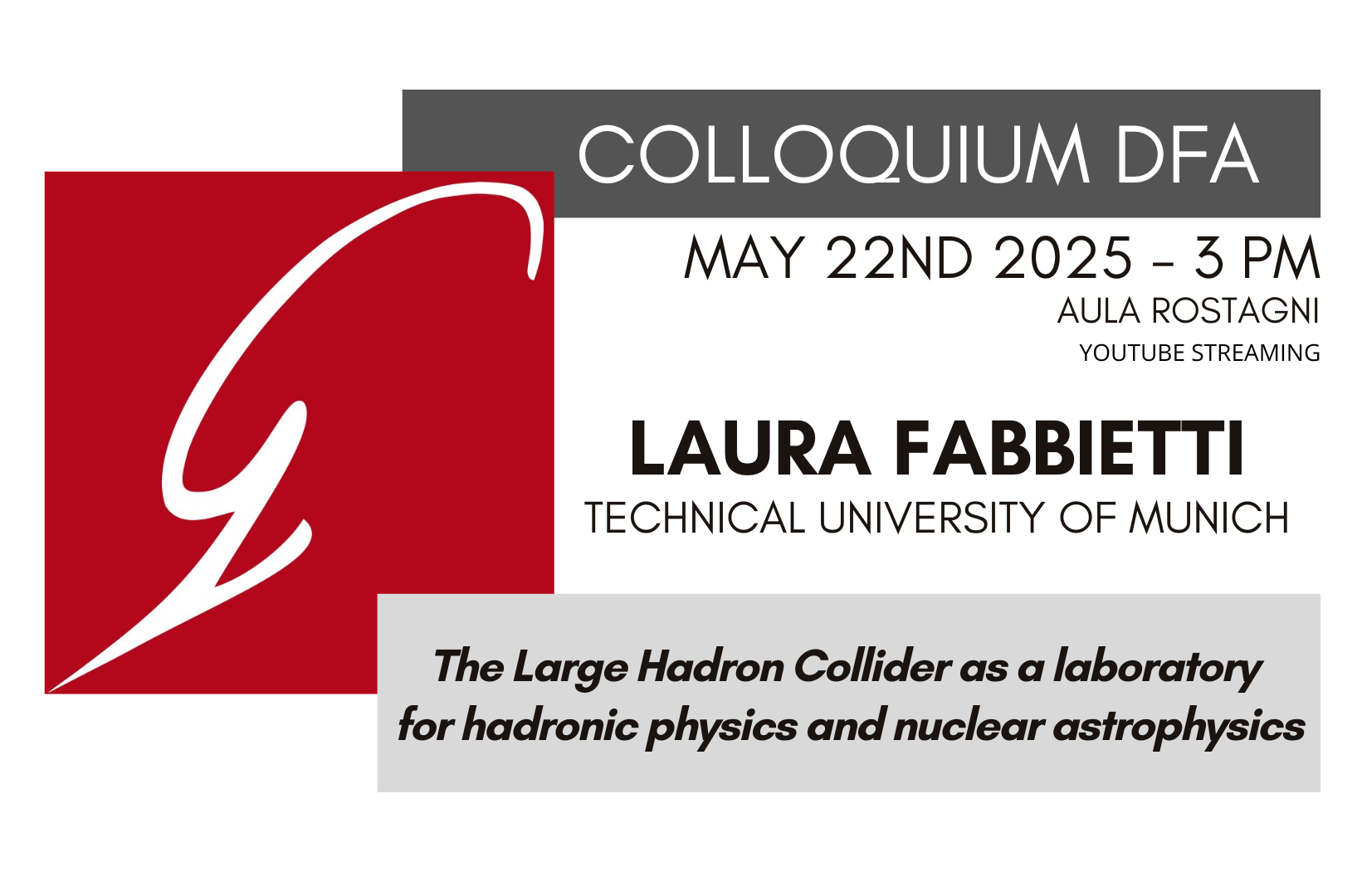Colloquium May 22 - The Large Hadron Collider as a laboratory for hadronic physics and nuclear astrophysics
by
1/1-1 - Aula "A. Rostagni"
Dipartimento di Fisica e Astronomia - Edificio Marzolo

Speaker: Prof. Laura Fabbietti
Affiliation: University of Munich
Date: May 22nd, at 3 PM
Where: Aula Rostagni
Abstract: In recent years a new technique to study the residual strong interaction among hadrons has been developed by the ALICE collaboration at the LHC. We have applied the femtoscopy-for-interactions method to data collected in pp collisions at 13 and 13.6 TeV to study the strong interaction of almost any hadron pairs containing up, down, strange and charm quarks. The technique provided precision data for systems already studied with scattering experiments, but also allowed to measure for the first time two body interactions which are otherwise not directly accessible. In this talk we will discuss the results of the interactions of strange hadrons and nucleons and connect the ALICE measurements to new calculation of the equation of state of neutron stars. In particular, we will focus on hyperons, which might be the constituents of the core of neutron stars, depending on the two and three-body interactions between hyperons and nucleons. Recent results and future perspectives will be discussed describing neutron stars also as a possible doorway to discover axions.
Laura Fabbietti is professor at TUM since 2011 and an active member of the ALICE collaboration since 2015. She is interested in new detector technologies, with experience in GEM detectors and most recently in CMOS silicon detectors and she developed a new technique to study hadron interactions and nuclei formation at the LHC. Her chair at TUM is also active within the R3B collaboration where spectroscopy of exotic nuclei is employed to study the final state interactions in many body nuclear systems. Fabbietti’s group is also active in linking the nuclear physics carried out at accelerator to astrophysics questions such as the study of neutron stars and indirect searches of dark matter.
youtube: https://www.youtube.com/@UniPadovaAulaRostagni
